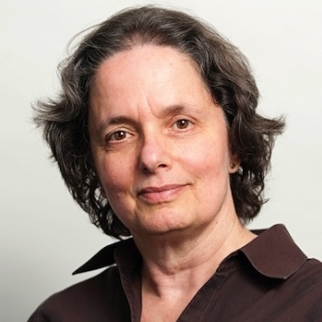We sat at my sister-in-law’s kitchen table, 11 of us from three generations of my husband’s family, absorbed by a wicked game of dreidel on the fifth night of Chanukah, howling with abandon and anticipation at each seemingly endless spin. My 10-year-old daughter, the youngest present, was killing us all, amassing huge quantities of chocolate gold.
But this typically Jewish gathering was really something quite different than what it might have seemed at first glance. We were in one of the least Jewish places in America, in a farmhouse on the icy plains of eastern Iowa. Twinkling Christmas lights lit up the front of the house, and a tree burned bright in the living room just beyond where we were sitting. The table was laden with a mix of beautifully crafted traditional holiday cookies, and my daughter was taking more than her share of the green wreath-shaped ones. The people, too, were not what you might expect — everyone other than my husband, my daughter and I was a devout Catholic.
This year my nuclear family — the three of us — had gathered together with my husband’s family, and we were taking advantage of the odd coincidence that overlapped Chanukah so directly with Christmas. It was the first time my husband’s family had ever seen a dreidel. Before this night they’d never tasted a latke, let alone a piece of gelt.
The Jewish rituals are now familiar to Richard, my husband of 15 years, although he sometimes still feels a bit new to all of it. He takes nothing for granted in his dreidel game, now that he’s gotten pretty comfortable with the Hebrew letters and their designations. As we lit the candles on the menorah we’d brought with us from Los Angeles, he was the one to translate the prayers for his family — taking care to explain the meaning behind the Hebrew words we’d chanted, because he especially knows what it means to not understand.
Richard is in the process of converting to Judaism, a step that’s been a long time coming, although he long ago moved away from the heartfelt faith his heartland family sought to instill in him. It’s been a big move; he knew of only one or two Jewish families growing up in this region, where the most popular museum features John Deere farm equipment, and a local chain of ice cream shops is a main attraction. As we laughed through this Chanukah evening together, it was easy to understand how much he respects and loves his German, Scots-Irish family, who have stayed close to their Midwestern roots, even though they no longer till the land. His decision to change religions has been a very careful and prolonged one.
It wasn’t easy for me to enter his family, either; at least the anticipation of it was intimidating for this East Coast-born, deeply ethnic Jew. In 1989, I made my first trip to the Quad Cities, along the banks of the Mississippi at the border of Illinois and Iowa, and I was scared. I feared that Richard’s family would see me as an alien being — an aspiring intellectual, art-loving liberal. These were interests, I presumed, that they knew little about.
I was afraid they’d reject me because Catholicism is so important in their lives; it wasn’t just of passing interest that I was not one of them. Just as we Jews hope to preserve the sanctity of a Jewish family, they believe in their traditions and the need to perpetuate those beliefs. Mary, the oldest of my husband’s three sisters, is a nun; one of his brother’s sons studied to be a priest for a while. I’d had Catholic friends my whole life, but Richard’s family was somehow more Catholic, more devout and more lovingly committed to their faith than any I’d ever known.
Yet from our first hug when they met me in the airport on that first trip, they’ve never let me down. That embrace was the first of many, and I can no longer even imagine them rejecting our ways. Their early misgivings about their Richard marrying a Jew — and even about his gradually becoming a Jew — have not stopped them from accepting us for who we are. Over time, my mother-in-law has let us know that she is concerned first that we have faith in God. As for their granddaughter, she brings home stories not from a Catholic school, nor a public school, but a Jewish day school. Both of Richard’s parents joyously take in these tales like the doting grandparents they are; and they have come to Los Angeles to visit her and see her school performances.
So there we were in Iowa, playing with a dreidel because Christmas and Chanukah coincided and because this family of Catholics is always ready for a good game. As Richard patiently taught them the Hebrew letters on the dreidel — it took some effort, as those little squiggles all seemed to baffle them — I cooked the latkes with the help of my two 4H-proud nephews. Good food is a universal language. My mother-in-law knows this, too. As dinner was being prepared, she surprised me with a kugel she’d made, inspired by a recipe she’d gotten years ago from my father’s mother.
As the game ended, Mary picked up a couple of pieces of gelt to take home to her monastery. There was a picture of a menorah on the coin, and she wanted to share it with the sisters.





















 More news and opinions than at a Shabbat dinner, right in your inbox.
More news and opinions than at a Shabbat dinner, right in your inbox.